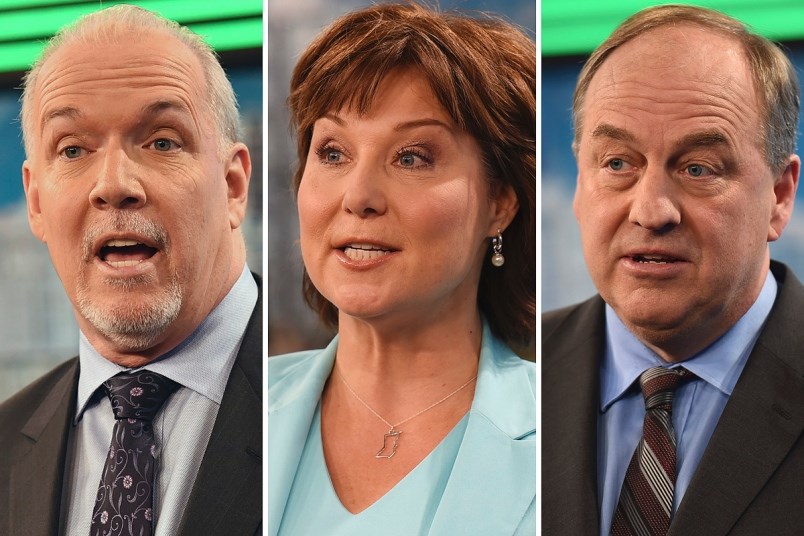The other annoying thing about the Medical Services Plan premium, apart from having to pay it in the first place, is how complicated it is. And how further complicated it gets when anyone talks about changing it.
But if you really want to set your head spinning, try to follow the arguments when the parties talk about each others’ changes.
NDP candidate Carole James confirmed this week some of the details that would follow the party’s plan to abolish the standalone tax.
The platform promise is to create a non-partisan panel to advise on how to phase out “this unfair flat tax” in four years while protecting health-care funding. But eliminating a tax doesn’t mean eliminating the cost of paying for health care. Taxpayers are still going to cover multibillion-dollar health-care costs. The argument is about how.
James, who is co-chair of the party’s platform committee, said the plan is to switch to a progressive tax system, rather than the current system of charging the same amount to everyone who earns more than about $42,000 ($50,000 for families).
She didn’t specify income tax, although it’s inferred from her comments.
“So will the highest income earners pay a little more? Yes. And will we protect low- and middle-income earners? Yes.”
But low-income earners are already protected, by being exempted. About half the population doesn’t pay MSP, due to numerous refinements over the years, including the move to exempt all children. The downside to those benefits is that everyone else pays more.
Premiums have doubled over the past 16 years, as the government tries to maintain MSP premiums as a big revenue source, while collecting it from fewer and fewer people.
One wrinkle in any plans to eliminate MSP is that as many as a million people have premiums paid by their employers. So eliminating premiums would mean little to those individuals, other than not having to pay at tax time for a taxable benefit. It’s corporations employing those people and paying those premiums that would get the break.
The trick is to change the system so people don’t wind up paying more in income tax to cover the elimination of premiums they didn’t pay in the first place.
The B.C. Liberals made their MSP move in the budget, announcing plans to cut premiums in half for everyone earning under $120,000 a year. It’s only half the loaf that the NDP promised, but it’s presented as a real tax cut (up to $900 a year), in that no corresponding increases elsewhere are contemplated.
The Liberals are trying to highlight the misleading impression the NDP left by promising to eliminate a tax, then confirming it’s just going to be replaced by something better. But it was widely assumed that straight-up elimination isn’t in the cards, since it would cost the government an enormous amount of money.
It will bring in $2.5 billion this year. If the Liberal cut takes effect next year, it would collect $1.76 billion.
The B.C. Greens have a similar switchover from premiums to income-tax hikes in their plans.
The NDP is firing back by saying the other part of the Liberal MSP promise is starting to fall apart. Along with the 50 per cent cut, the Liberals matched their opponents by stressing they intend to begin the process of eliminating premiums.
But that is a long-range idea that looks even further away given subsequent Liberal talk about how it will happen when the economy can afford it.
The rest of Canada either never devised standalone premiums, or got rid of them in some fashion years ago. So it is doable.
But there are a lot of confusing arguments to get through in B.C. before the province falls in line.
Liberals say the NDP promise to wipe it out is fake, since it will just be replaced by something else.
The NDP says the Liberals are only going halfway, and only up to a certain income limit. And their vague promise to go further is fading into the distance.
The argument over the past few years has succeeded in moving the dial. The vote on May 9 will decide how and how far that continues.



